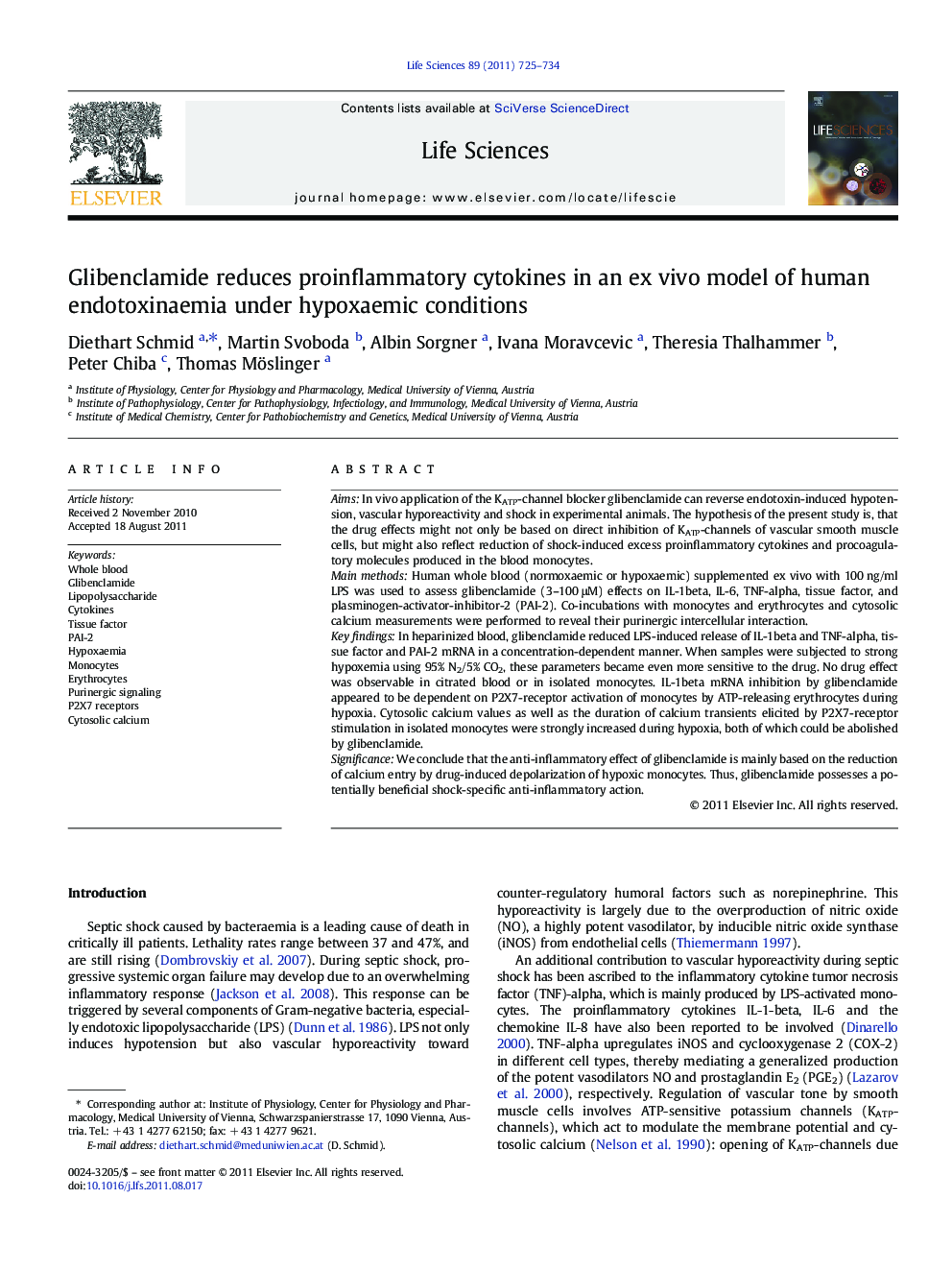| کد مقاله | کد نشریه | سال انتشار | مقاله انگلیسی | نسخه تمام متن |
|---|---|---|---|---|
| 2551997 | 1560665 | 2011 | 10 صفحه PDF | دانلود رایگان |

AimsIn vivo application of the KATP-channel blocker glibenclamide can reverse endotoxin-induced hypotension, vascular hyporeactivity and shock in experimental animals. The hypothesis of the present study is, that the drug effects might not only be based on direct inhibition of KATP-channels of vascular smooth muscle cells, but might also reflect reduction of shock-induced excess proinflammatory cytokines and procoagulatory molecules produced in the blood monocytes.Main methodsHuman whole blood (normoxaemic or hypoxaemic) supplemented ex vivo with 100 ng/ml LPS was used to assess glibenclamide (3–100 μM) effects on IL-1beta, IL-6, TNF-alpha, tissue factor, and plasminogen-activator-inhibitor-2 (PAI-2). Co-incubations with monocytes and erythrocytes and cytosolic calcium measurements were performed to reveal their purinergic intercellular interaction.Key findingsIn heparinized blood, glibenclamide reduced LPS-induced release of IL-1beta and TNF-alpha, tissue factor and PAI-2 mRNA in a concentration-dependent manner. When samples were subjected to strong hypoxemia using 95% N2/5% CO2, these parameters became even more sensitive to the drug. No drug effect was observable in citrated blood or in isolated monocytes. IL-1beta mRNA inhibition by glibenclamide appeared to be dependent on P2X7-receptor activation of monocytes by ATP-releasing erythrocytes during hypoxia. Cytosolic calcium values as well as the duration of calcium transients elicited by P2X7-receptor stimulation in isolated monocytes were strongly increased during hypoxia, both of which could be abolished by glibenclamide.SignificanceWe conclude that the anti-inflammatory effect of glibenclamide is mainly based on the reduction of calcium entry by drug-induced depolarization of hypoxic monocytes. Thus, glibenclamide possesses a potentially beneficial shock-specific anti-inflammatory action.
Journal: Life Sciences - Volume 89, Issues 19–20, 7 November 2011, Pages 725–734